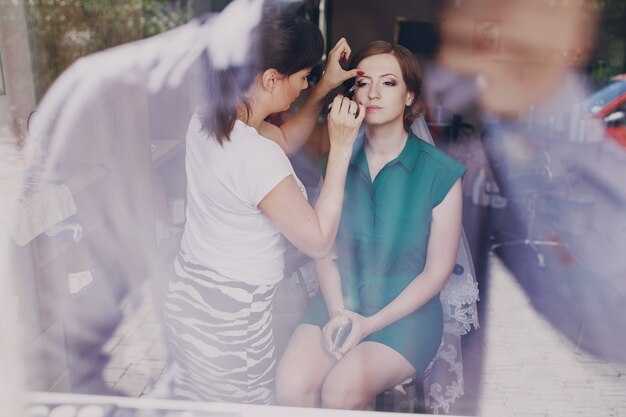May I offer a piece of advice? Don’t allow tenderness to fade from your partnership; don’t let romance fall by the wayside. You often don’t realize how vital these things are until their absence is felt, whether that neglect was deliberate or accidental — the harm is the same. I came across a striking observation from Drs. John and Julie Gottman in their book Eight Dates: they argue that playfulness in a relationship is as crucial as faithfulness for keeping love alive and flourishing. That may sound surprising, so let me be clear for anyone who has been betrayed: they are not claiming that a lack of playfulness is equivalent to cheating, nor are they suggesting it excuses infidelity. That’s not what they mean. The core idea is that commitment to a marriage is more than merely avoiding affairs. True commitment and fidelity include intentionally creating space for intimacy, growth, vulnerability, connection, and friendship — all elements that matter just as much to a marriage’s survival as not straying. Each year countless long-term relationships and marriages collapse even without any unfaithfulness, and I’d bet that if you asked partners leaving those unions, one or both would point to a shortage of affection, romance, or playful connection — a lack of mutual, deliberate movement toward closeness. That absence can be as lethal as betrayal. So what can we do? First, start the conversation. Remember you’re a team and ask each other how much playfulness, touch, flirting, and affection mean to you. Flirting — that playful attraction you showed when you were falling for one another, not just the steady feeling of love — matters. Ask your partner whether they feel desired. Ask the big, often-skipped question: what does sexual fulfillment look like to you? Many of us avoid this out of fear we’ll hear something uncomfortable or feel like we’ve failed, but that avoidance is what creates the distance and disconnection we dread. Honesty, vulnerability, and trying to understand each other’s pain are what help bridge gaps, not silence. Second, notice what’s draining your relationship’s lightness. Pay attention to the things that kill playfulness — stress, depression, kids, anxiety, illness, disability — all real and valid pressures. Acknowledging and empathizing with those difficulties doesn’t mean pretending they don’t exist or using them as a reason to avoid talking about the consequences they have for your bond. Even if this season makes playfulness or physical affection hard, you can still recognize how that affects your connection. Third, when you can, make space for it. Consciously prioritize fun, flirting, affection, and touch. Pick a day to go over-the-top loving: write a heartfelt note, tuck sticky messages by the mirror, send a midday “I love you,” book a babysitter and plan a date night, touch her often, kiss her softly — and don’t turn it into sex. She’ll be stunned; she might even suspect you’re trying to apologize for something, but imagine her surprise when she realizes you’re simply being affectionate out of care. Experiencing that renewed play and warmth might make you both want to keep doing it. If hearing all this feels unbearable because the hurt is so deep that you no longer care about playfulness and certainly don’t want to be playful with your partner, then it’s time to see a counselor — there’s likely a great deal of resentment and pain that needs professional help. Apologies for ending on a heavier note, but it’s true: it matters. In short, let’s try. This is difficult for everyone, but try to keep in mind that playfulness is as important as any other element in a relationship. Ask yourself: Am I prioritizing playfulness? Am I someone who brings joy into the partnership? Am I intentionally practicing gratitude? Am I pursuing affection, or am I contributing to stress and chaos? Change requires honest self-reflection — are you ready to answer those questions?
Practical, short exercises to restore play and closeness:
- Five-minute daily check-in: each person shares one highlight and one low point from their day without problem-solving.
- Appreciation habit: each evening name one thing your partner did that you noticed and appreciate — aloud or in a note.
- Weekly mini-date: 30–60 minutes dedicated to something fun (a walk, a coffee, a silly game) with phones put away.
- Flirt file: keep a list of little teasing lines, private jokes, or memories to use when you want to spark attraction.
- Touch map: separately list non-sexual touches that feel comforting or joyful (hand-holding, forehead kiss, back rub) and practice them.
- “Yes, and…” game: for conversation, build on each other’s ideas playfully instead of criticizing — it trains positive improvisation.
Conversation starters that open rather than shut down:
- “When do you feel most connected to me?”
- “What small acts make you feel loved that I might not realize?”
- “If we had one free afternoon together, what would you want to do?”
- “Is there anything I do that makes you feel less inclined to be affectionate?”
- “What’s one fun thing you miss from when we were dating?”
How to handle common obstacles:
- Busy schedules: schedule play like any important appointment. Even predictable small rituals (morning kiss, a weekly date night) build safety and anticipation.
- Low energy or mental health struggles: lower the bar — aim for brief, gentle touches or a 10-minute shared activity rather than expecting big romantic gestures.
- Avoidance and fear of vulnerability: use “soft startups” (gentle, non-blaming language) and take turns listening without interrupting to reduce defensiveness.
- When one partner resists playfulness: ask curiosity questions rather than pushing; find small compromises that feel safe for both sides.
Small rituals that matter more than big events:

- Device-free time: set 20–30 minutes after dinner to talk, play a game, or take a walk.
- Touch check: a nightly five-minute cuddle or hand-holding before sleep preserves physical intimacy.
- Surprise kindness: a sticky note, a favorite snack, or a handwritten line of appreciation can interrupt monotony and rekindle warmth.
When to get professional help and what to look for:

- Consider couples therapy if resentment is persistent, fights repeat the same patterns, emotional withdrawal is common, or one partner has stopped trying.
- Individual therapy helps when depression, anxiety, trauma, or addiction interfere with the ability to connect.
- Seek clinicians trained in evidence-based approaches (Gottman Method, Emotionally Focused Therapy, or a certified sex therapist) for focused, practical tools.
Final practical reminders: be patient and persistent. Small, consistent acts of kindness and playful curiosity compound over time. Celebrate micro-wins — a good laugh, a shared memory, a held hand — and treat them as signs you’re rebuilding the pattern you want. Playfulness doesn’t erase hard work or pain, but it softens the edges and makes the work worth doing together.













